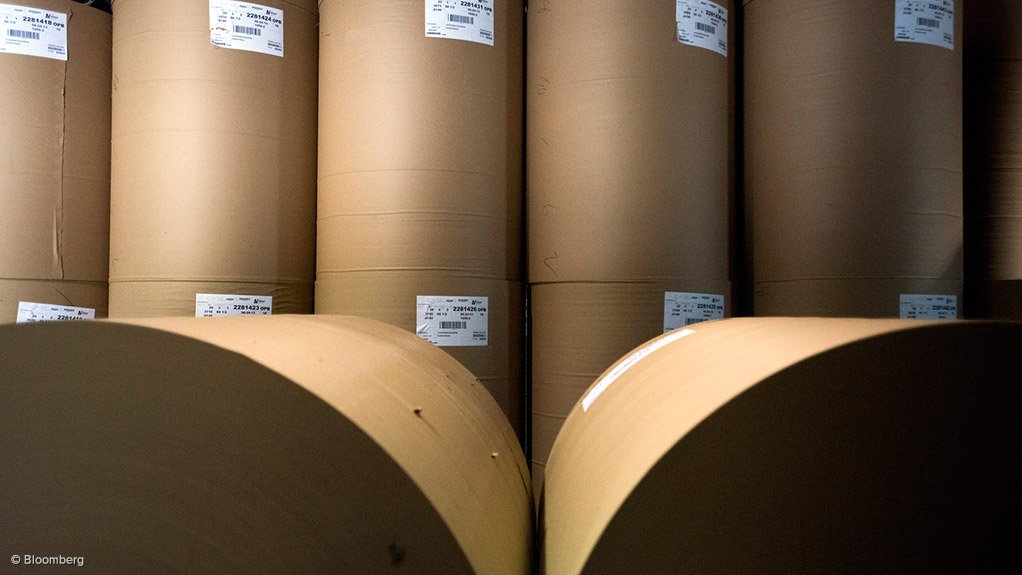JSE-listed paper and plastics packaging manufacturer Mpact’s recycling business, Mpact Recycling, was aiming to increase South Africa’s recycling rate by focusing on paper collection from individual households and rural areas, Mpact Recycling MD John Hunt said on Wednesday.
He told Engineering News Online that South Africa’s paper recycling rate was currently 60%, which left the country with opportunity to improve.
Hunt further pointed out that, on top of the obvious environmental benefits, recycling had significant economic impact through job creation.
“The real challenge is how we get paper back from people’s [rubbish] bins to a paper mill where it is reused. The country also has [significant] rural areas that are sparsely populated and the big cost of recycling is moving that material,” he explained.
Hunt added that Mpact was, since October last year, working on a project in rural KwaZulu-Natal, where the company had contacted 29 municipalities in an attempt to set up the necessary infrastructure to regularly collect waste paper from these areas.
“There is a surprising amount of economic activity [in these areas] which means that people are buying [products] but throwing away the packaging, which means that there is a [recycling] opportunity,” he said.
Currently, Mpact had 57 people regularly collecting paper from these areas for the company.
Once this project was implemented successfully, Mpact would aim to implement similar solutions in southern KwaZulu-Natal and the northern areas of the former Transkei, in the Eastern Cape.
Hunt further said this targeted increased supply from rural areas would also enable Mpact to meet the supply requirements of its Felixton paper mill, in KwaZulu-Natal, which would – once fully upgraded in 2017 – require an extra 100 000 t/y of recycled paper.
“This drives us to grow the market. While our job is to collect [waste paper], we also need to track opportunities [relating to the supply of this material],” he explained.
Meanwhile, Hunt mentioned that the Waste Management Act was putting a lot of pressure on municipalities to improve the collection of waste at its source and, therefore, Mpact was working with municipalities to design recycling solutions.
He said there was a lot of activity within municipalities with regard to recycling, which was encouraging, highlighting that Mpact was currently discussing the potential establishment of 31 collection buy-back centres within the Ekurhuleni municipality, in Gauteng.
“We have [presented] this proposal to them and they are keen, but the issue is finding the sites [to establish these centres],” Hunt noted.
Further, in future, Mpact planned to increase its focus on collecting all recyclable materials, such as glass, plastics and aluminium cans, as opposed to mainly focusing on paper.
Hunt stated that, in the long term, the company believed that it could become the biggest plastics recycler in South Africa in addition to being the country’s biggest paper recycler.
“We are starting to investigate projects where we can collect [plastic] materials, [in the same manner as we collect paper], and convert that recycled material into products that we can use in our own manufacturing process.
“So, there is an opportunity not only for paper to grow but also for plastics to grow significantly,” he said.
EMAIL THIS ARTICLE SAVE THIS ARTICLE
To subscribe email subscriptions@creamermedia.co.za or click here
To advertise email advertising@creamermedia.co.za or click here











